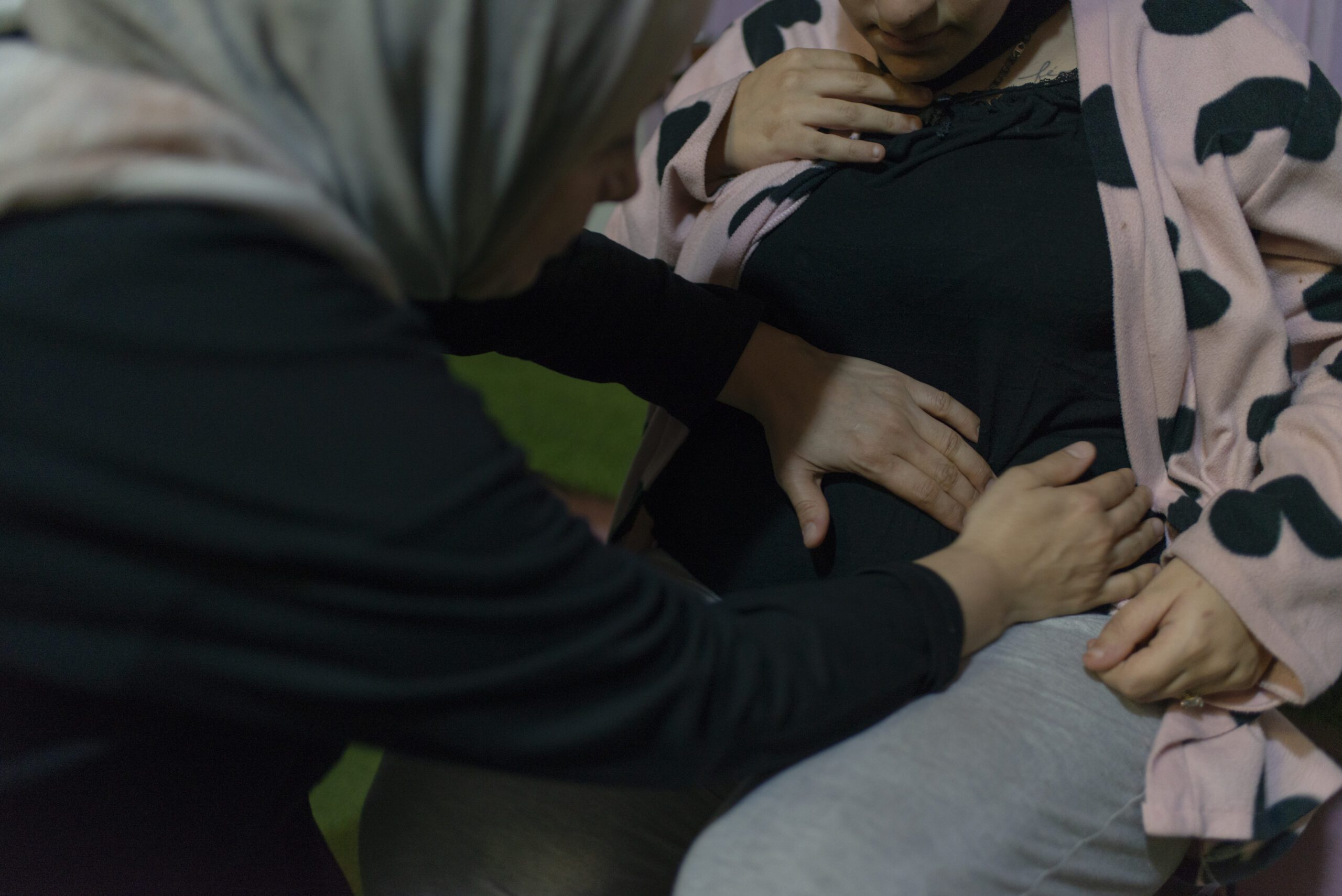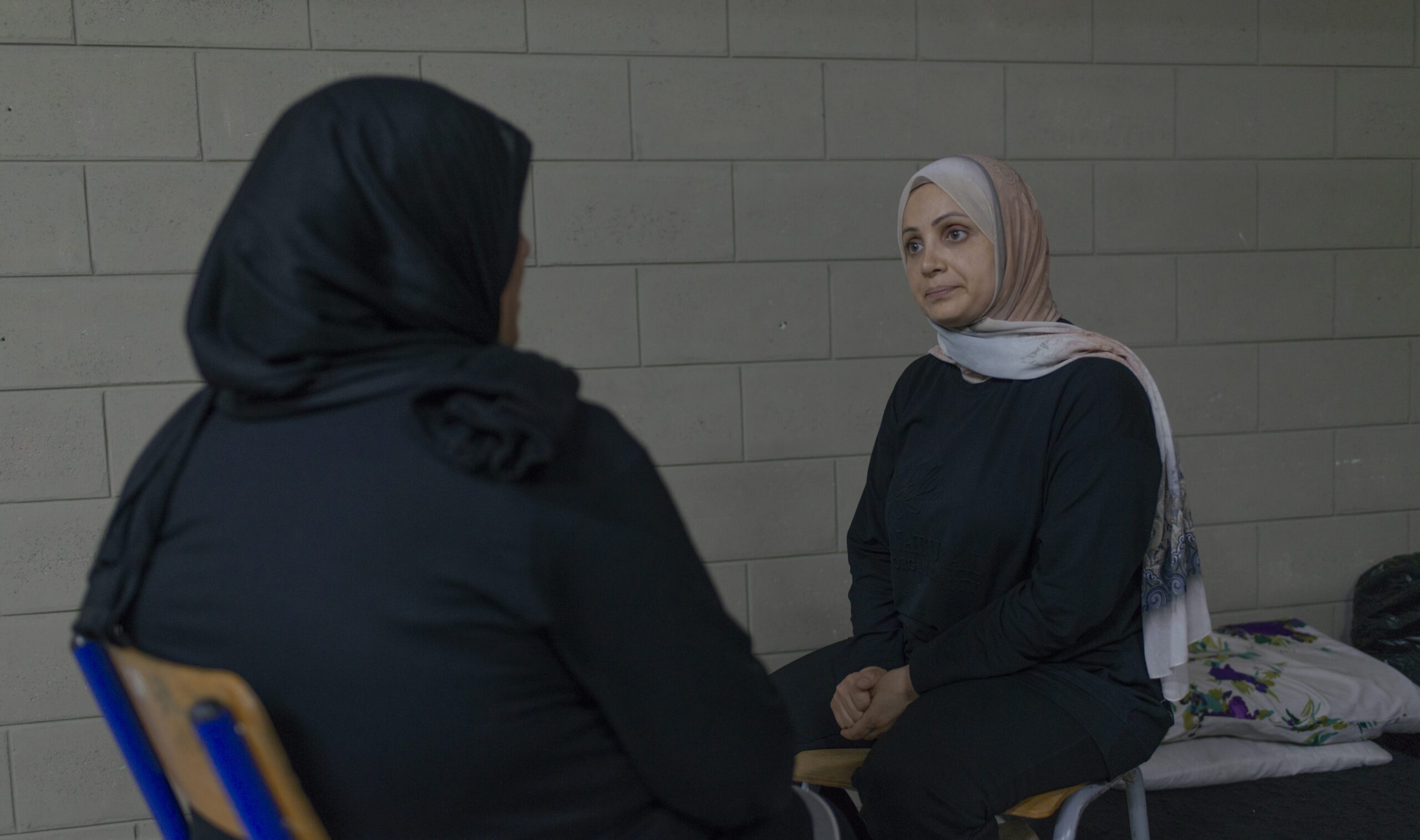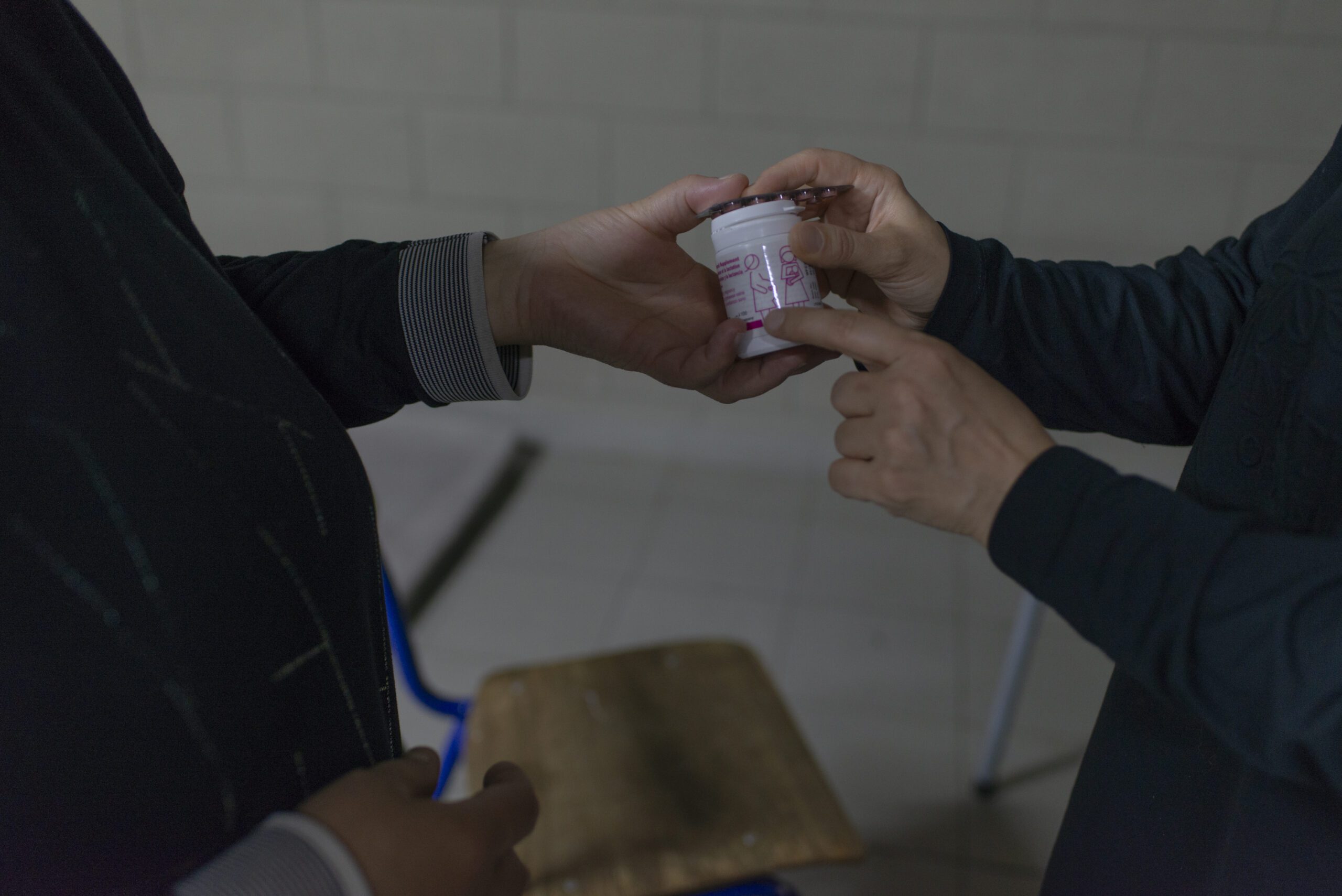On a rainy and cold November night, Rayane sat outside her neighbor’s classroom in Tariq-El-Jdideh, a predominantly Sunni district in Beirut. She had moved to the neighborhood, already pregnant, two months before, when she was displaced from Dahiyeh, a suburb on the southern edge of the city during the heavy Israeli bombardment that began mid-September in Beirut, and that has been ravaging the country’s south for over a year.
Sixteen years old and nine months pregnant, Rayane had wrapped herself in a pink bathrobe with black hearts and welcomed her midwife, Darine Ayoub, who had been accompanying her for over a month now. Like Rayane and an estimated 1.2 million Lebanese, Ayoub had also been displaced by the conflict. Originally from the southern suburbs of Beirut, she found shelter with her extended family in a flat closer to the center, in what is considered a safer neighborhood. She finds meaning and purpose in her work and says that helping other displaced women is essential for her to avoid “sinking into depression.”
Ayoub is part of the Order of Midwives, which was created by the Lebanese government in 2014. With 300 midwives offering emergency care and home visits to pregnant women, the initiative aims to address the country’s maternal mortality rate, which almost tripled in the space of a few years from 13.7 in 2019 to 37 deaths per 100,000 births in 2022. The country’s severe economic crisis that began in 2019, combined with the coronavirus epidemic, proved a lethal cocktail for access to healthcare in a country with an already failing health system. According to the Ministry of Health statistics in 2023, a drop was recorded in 2022, with a ratio of 15.4 deaths per 100,000 births. But the ratio has risen again in the last year to 25.4 deaths per 100,000 births.
Ayoub placed her hands on her patient’s rounded belly. “Can you feel the baby’s movements?” The veteran midwife asked. “You must tell him: ‘I love you very much, and you’re going to be called Jad; Dad loves you too.’ Do you know he can hear you?”
















